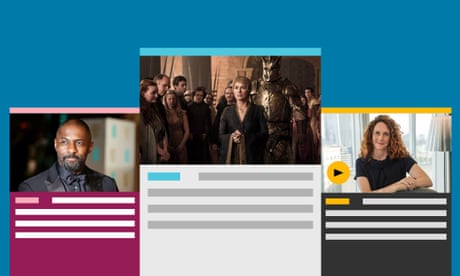Alex Hern
 Social networks would be regulated “exactly the same way that you regulated the cigarette industry”, Benioff told CNBC at the World Economic Forum in Davos. “Here’s a product – cigarettes – they’re addictive, they’re not good for you, maybe there’s all kinds of different forces trying to get you to do certain things. There’s a lot of parallels.“I think that, for sure, technology has addictive qualities that we have to address, and that product designers are working to make those products more addictive, and we need to rein that back as much as possible,” he added. Benioff, who founded B2B cloud computing company Salesforce in 1999, and is now worth more than $4bn, suggested that regulation of some form was inevitable for the technology industry.
Social networks would be regulated “exactly the same way that you regulated the cigarette industry”, Benioff told CNBC at the World Economic Forum in Davos. “Here’s a product – cigarettes – they’re addictive, they’re not good for you, maybe there’s all kinds of different forces trying to get you to do certain things. There’s a lot of parallels.“I think that, for sure, technology has addictive qualities that we have to address, and that product designers are working to make those products more addictive, and we need to rein that back as much as possible,” he added. Benioff, who founded B2B cloud computing company Salesforce in 1999, and is now worth more than $4bn, suggested that regulation of some form was inevitable for the technology industry.
“We’re the same as any other industry,” he said. “Financial services, consumer product goods, food — in technology, the government’s going to have to be involved. There is some regulation but there probably will have to be more.”
A string of Silicon Valley heads have spoken out in recent months about their fear that social media could be more psychologically damaging than anyone expected. Last week, venture capitalist Roger McNamee – an early investor in Facebook – wrote a Guardian column warning that the company would would have to “address the harm the platform has caused through addiction and exploitation by bad actors”.

“I was once Mark Zuckerberg’s mentor, but I have not been able to speak to him about this. Unfortunately, all the internet platforms are deflecting criticism and leaving their users in peril,” McNamee wrote.
Earlier, Sean Parker, Facebook’s first President, had described the business practice of social media firms as “a social-validation feedback loop … exactly the kind of thing that a hacker like myself would come up with, because you’re exploiting a vulnerability in human psychology”. Parker now describes himself as “something of a conscientious objector” to social media.
As part of its attempt to win back control of the narrative, Facebook has announced it will begin taking into account how trusted a publisher is as part of its News Feed algorithm. The company’s metric for determining trust, however, is a simple two-question survey, causing some to query its potential.
Since you’re here …
… we have a small favour to ask. More people are reading the Guardian than ever but advertising revenues across the media are falling fast. And unlike many news organisations, we haven’t put up a paywall – we want to keep our journalism as open as we can. So you can see why we need to ask for your help. The Guardian’s independent, investigative journalism takes a lot of time, money and hard work to produce. But we do it because we believe our perspective matters – because it might well be your perspective, too.
I appreciate there not being a paywall: it is more democratic for the media to be available for all and not a commodity to be purchased by a few. I’m happy to make a contribution so others with less means still have access to information.Thomasine F-R.
No comments:
Post a Comment